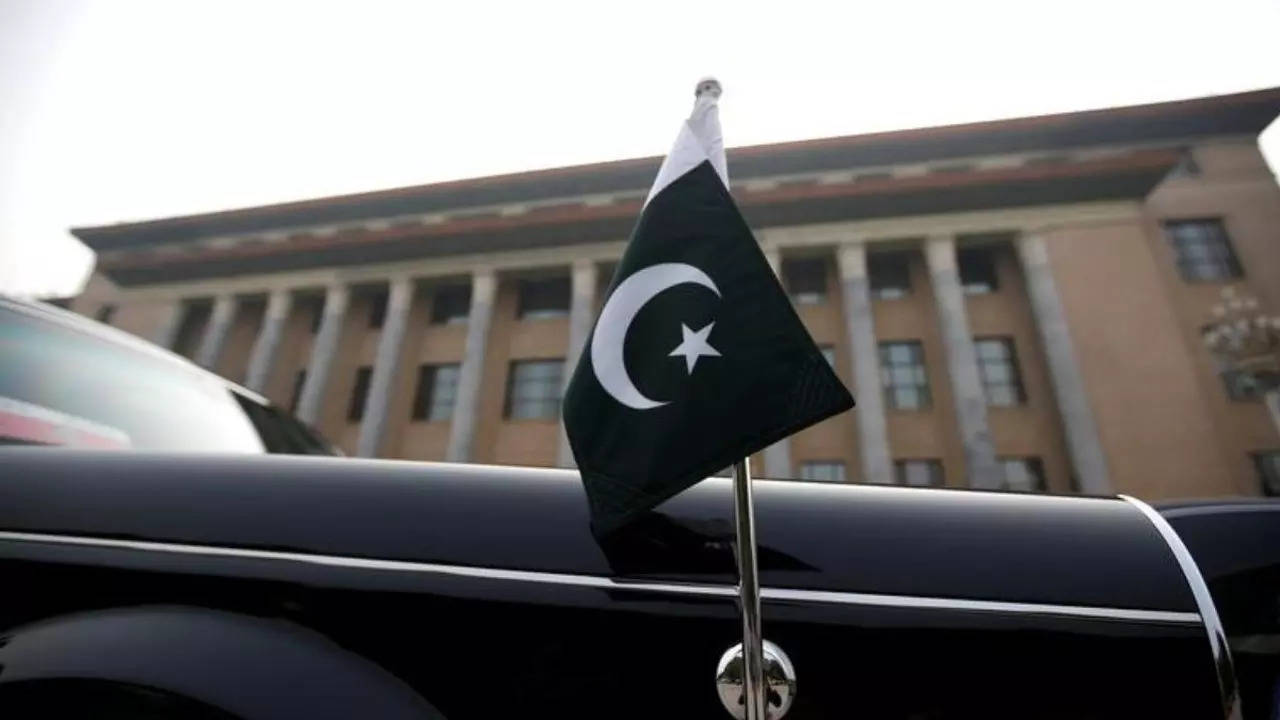World
Pakistan needs to unlock IMF bailout to avoid default

[ad_1]
ISLAMABAD: The International Monetary Fund (IMF) has raised serious objections over Pakistan’s budget for 2023-24, lessening chances that the global lender will revive the loan programme that the cash-starved country has been seeking to meet its international debt obligations.
Since the IMF programme — which has been delayed since late last year over a policy framework — expires in two weeks, on June 30,Pakistan has been racing against time to implement measures to reach an agreement with the IMF which would not only lead to a disbursement of $1.2 billion, part of the $6.7 billion bailout package but also unlock inflowsof funds from other multilateral lenders andfriendly countries.
TheIMF, however,is sticking to its tough conditions while holding backrelease of funds as it pushes Islamabad even harder to increase revenue.
The PM Shehbaz Sharif-led government, however, has been makinga final effort to revive the country’s IMF programme, with a financing gap of $2 billion and its exchange-rate policy among the biggest hurdles.
In a last ditch-effort, finance minister Ishaq Dar held a virtual meeting with IMF mission chief Nathan Porter on Tuesday to secure the IMF programme. The meeting ended inconclusively. Aisha Ghaus Pasha, junior ministerfor finance,said the IMF was not satisfied with the budgetary framework for 2023-24 and another round of meetings would now be held to address the IMF’s concerns.
Without the IMF on board, the risk ofPakistan defaulting on its foreign debt repayments has sharpened. The country’s foreign reserves have fallen critically low, below $3 billion, after it repaid a $1 billion commercial loan toChina earlier than its maturity.
The low reserves, which barely provide cover for three weeks of imports, may mount pressure on the rupee against the US dollar, which was trading at Rs 287 against the dollar in the interbank market on Wednesday.
Moody’s Investors Service warned on Wednesday that Pakistan is at increased risk of failing to restart its bailout programme with the IMF putting the country closer to a sovereign default. “There are increasing risks that Pakistan may be unable to complete the IMF programme that expires at the end of June,” said Grace Lim, a sovereign analyst with the rating company in Singapore.
“Without an IMF programme, Pakistan could default, given its very weak reserves,” Bloomberg cited Lim as saying.
“Pakistan’s financing options beyond June are highly uncertain, even as its external repayments will remain significant over the next few years,” Lim said. Continuing engagement with the IMF would support additional financing from other multilateral and bilateral partners, which could reduce default risk, she added.
Pakistan is staring at about $23 billion in external debt payments for fiscal 2023-24, which begins in July. The amount is roughly five times its reserves and most of it is taken from concessional multilateral and bilateral sources.
Since the IMF programme — which has been delayed since late last year over a policy framework — expires in two weeks, on June 30,Pakistan has been racing against time to implement measures to reach an agreement with the IMF which would not only lead to a disbursement of $1.2 billion, part of the $6.7 billion bailout package but also unlock inflowsof funds from other multilateral lenders andfriendly countries.
TheIMF, however,is sticking to its tough conditions while holding backrelease of funds as it pushes Islamabad even harder to increase revenue.
The PM Shehbaz Sharif-led government, however, has been makinga final effort to revive the country’s IMF programme, with a financing gap of $2 billion and its exchange-rate policy among the biggest hurdles.
In a last ditch-effort, finance minister Ishaq Dar held a virtual meeting with IMF mission chief Nathan Porter on Tuesday to secure the IMF programme. The meeting ended inconclusively. Aisha Ghaus Pasha, junior ministerfor finance,said the IMF was not satisfied with the budgetary framework for 2023-24 and another round of meetings would now be held to address the IMF’s concerns.
Without the IMF on board, the risk ofPakistan defaulting on its foreign debt repayments has sharpened. The country’s foreign reserves have fallen critically low, below $3 billion, after it repaid a $1 billion commercial loan toChina earlier than its maturity.
The low reserves, which barely provide cover for three weeks of imports, may mount pressure on the rupee against the US dollar, which was trading at Rs 287 against the dollar in the interbank market on Wednesday.
Moody’s Investors Service warned on Wednesday that Pakistan is at increased risk of failing to restart its bailout programme with the IMF putting the country closer to a sovereign default. “There are increasing risks that Pakistan may be unable to complete the IMF programme that expires at the end of June,” said Grace Lim, a sovereign analyst with the rating company in Singapore.
“Without an IMF programme, Pakistan could default, given its very weak reserves,” Bloomberg cited Lim as saying.
“Pakistan’s financing options beyond June are highly uncertain, even as its external repayments will remain significant over the next few years,” Lim said. Continuing engagement with the IMF would support additional financing from other multilateral and bilateral partners, which could reduce default risk, she added.
Pakistan is staring at about $23 billion in external debt payments for fiscal 2023-24, which begins in July. The amount is roughly five times its reserves and most of it is taken from concessional multilateral and bilateral sources.
#Pakistan #unlock #IMF #bailout #avoid #default






